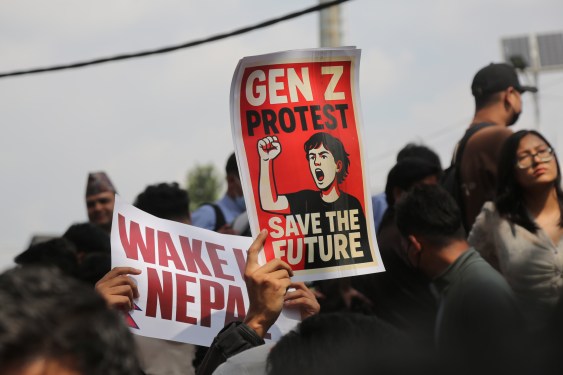Nepal has made a dramatic U-turn, reversing a social media ban imposed last week. The decision to lift the ban came after it sparked nationwide “Gen Z” protests that reportedly left at least 19 people dead.
The original ban blocked access to 26 platforms, including Facebook, Instagram, YouTube, and X. It was imposed following an August 25 directive that required foreign social media companies to register their operations in Nepal and appoint a local contact within seven days. When most platforms failed to comply by the deadline, the government cut access last week.
Late on Monday, Nepal’s Communications and Information Technology Minister Prithvi Subba Gurung told reporters that the government had revoked the social media ban in response to the public outrage.
Monday’s reversal came just hours after thousands of people, many of them students in school uniforms, flooded the streets across Nepal demanding an end to the social media blackout. The youth-led protests escalated into violent clashes with security forces in several areas, resulting in the deaths of at least 19 demonstrators and leaving more than 100 others injured, according to local media reports.
In a statement late Monday, Nepal’s Prime Minister KP Sharma Oli said that the protests turned violent due to infiltration by certain elements, but that the government was never opposed to the demands of the new generation.
International organizations, including the United Nations and human rights groups such as Amnesty International, had earlier raised concerns about the ban and the government’s response to the public uproar. The Office of the United Nations High Commissioner for Human Rights issued a statement on Monday calling on the authorities to respect and ensure the rights of peaceful assembly and freedom of expression.
Some platforms, such as TikTok and Rakuten Group-owned Viber, were not affected by the ban as the government stated they had already complied with the directive and registered locally.
The social media restrictions are part of a broader government effort to regulate digital platforms. Earlier this year, Nepal’s government faced widespread outrage over its proposed social media bill, which is still pending approval. The legislation includes provisions for imprisonment and fines for posts deemed against national sovereignty or interest. The International Federation of Journalists said the proposal threatens to severely undermine press freedom and digital expression.

